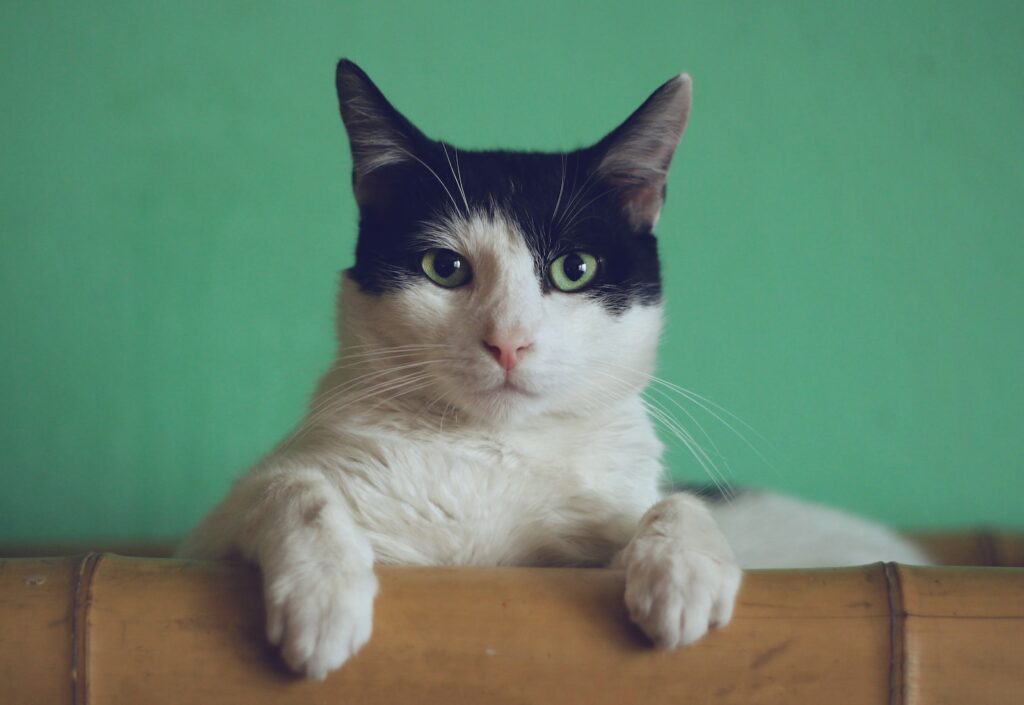Can Cats Eat Yogurt? — Yes, They Can
Cats can eat yogurt in moderation. While yogurt is not a natural part of a cat’s diet, it can be a healthy and safe treat when given in small amounts.
Can Kittens Eat Yogurt?
It is generally not recommended to feed yogurt to kittens. Kittens have sensitive stomachs and introducing yogurt to their diet at such a young age can potentially cause digestive issues. It’s best to consult with a veterinarian before giving yogurt to kittens.
Things to consider when feeding Yogurt to kittens?
If you decide to introduce yogurt to your kitten’s diet, it is important to do so gradually and in small portions. Monitor their reaction and digestion closely, and if any issues arise, discontinue feeding yogurt immediately.
Nutritional Benefits of Yogurt for Cats — Why Yogurt is Good for Cats?
1. Digestive Health
Yogurt contains probiotics that can help promote healthy digestion in cats. These live bacteria can improve gut health and regulate intestinal flora, leading to a more balanced digestive system.
2. Calcium Source
Yogurt is a good source of calcium, which is important for maintaining healthy teeth and bones in cats. Adding small amounts of yogurt to their diet can contribute to their overall bone health.
3. Protein Content
Yogurt contains protein, which is essential for cats’ muscle development, growth, and overall vitality. Including yogurt in their diet can help ensure they receive adequate protein intake.
4. Hydration Boost
Yogurt has a high water content, which can contribute to your cat’s hydration levels. This can be particularly beneficial for cats that may not drink enough water on their own.
5. Treat Option
Yogurt can be a tasty and healthy treat option for cats. It can add variety to their diet and provide them with a different texture and flavor experience.
Potential Allergies: Can Cats Be Allergic to Yogurt?
While allergies to yogurt in cats are rare, they can still occur. Some cats may be lactose intolerant or sensitive to dairy products, which can cause digestive issues or allergic reactions. It’s important to monitor your cat’s reaction when introducing yogurt for the first time.
Symptoms of Yogurt Allergies in Cats
- Vomiting or Diarrhea: Keep an eye out for any gastrointestinal issues that may arise after consuming yogurt.
- Itchy Skin or Rashes: Cats with yogurt allergies may show signs of skin irritation or develop rashes.
- Difficulty Breathing: In severe cases, cats may experience difficulty breathing, wheezing, or coughing.
What to Do If Your Cat Shows Symptoms?
- Consult a Veterinarian: If you notice any of the above symptoms, it is essential to seek professional guidance from a veterinarian.
- Discontinue Yogurt Feeding: Immediately stop feeding yogurt to your cat if you suspect an allergic reaction.
- Alternative Treat Options: Explore other treat options that do not contain yogurt or dairy to avoid future allergic reactions.
Recommended Amount: How Much Yogurt Can a Cat Consume?
When it comes to feeding yogurt to cats, moderation is key. It should only be given as an occasional treat and not as a regular part of their diet. A small teaspoon or less of plain, unsweetened yogurt is sufficient.
Things to Consider When Feeding Yogurt to Cats
It is important to choose plain yogurt without any added sugars or artificial sweeteners. Avoid flavored yogurts as they often contain additives that may be harmful to cats. Always check with your veterinarian before introducing any new food to your cat’s diet.
How to Feed Yogurt to Cats: A Quick Guide
Feeding yogurt to your cat can be a delightful experience for both of you. Here’s a simple guide on how to do it:
Yogurt Treat Recipe
Ingredients:
- Plain, unsweetened yogurt
Instructions:
- Scoop a small amount of plain, unsweetened yogurt into a bowl.
- Allow the yogurt to slightly warm up at room temperature.
- Offer the yogurt to your cat as a special treat. You can serve it on a spoon or even let them lick it directly from the bowl.
- Monitor their reaction and ensure they enjoy it without any adverse effects.
Conclusion
Yogurt can be a safe and healthy treat for cats when given in moderation. It offers several nutritional benefits, such as promoting digestive health, providing calcium, and offering hydration. However, it’s important to be mindful of potential allergies and introduce yogurt gradually. Always consult with your veterinarian before making any changes to your cat’s diet or introducing new foods.






